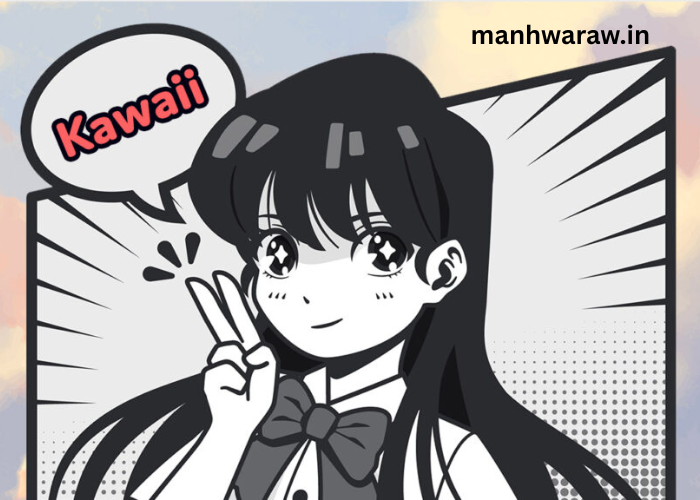Anime is more than just a form of entertainment; it’s a gateway to understanding a culture that is rich in language and tradition. Many anime words and phrases are commonly used in anime shows, and understanding these phrases can enhance your viewing experience. Whether you’re a seasoned anime fan or a beginner, learning these phrases will allow you to immerse yourself in the world of anime and understand the cultural nuances more effectively.
In this post, we’ll explore some of the most popular and useful anime words that appear regularly in anime shows. These phrases not only enrich the viewing experience but also introduce you to aspects of Japanese culture. By learning these terms, you’ll be able to appreciate the anime’s depth and connect more closely with the characters and storylines.
Key Points:
- Anime words are frequently used to convey emotions, manners, and cultural context.
- Understanding these phrases can make anime viewing more immersive and enjoyable.
- Many anime words have specific meanings that are deeply rooted in Japanese culture.
What Are Common Anime Words Used in Shows?
One of the most interesting aspects of anime is the way it uses Japanese words to convey various meanings. Some of these words are not commonly used in everyday conversation, but they hold a significant place in anime culture. Words like “Senpai,” “Konnichiwa,” “Arigato,” and “Baka” are frequently heard in anime, and each one has a distinct role in the storyline. Let’s break down some of these words to understand their meanings and contexts.
Senpai: In many anime, the term “senpai” is used to refer to a senior or someone who has more experience. It’s often used in school-based anime or workplace settings. For example, a younger student might call an older student “senpai” as a sign of respect.
Konnichiwa: This is a common greeting in Japanese, meaning “Hello” or “Good afternoon.” You’ll often hear characters use this phrase when meeting someone during the day.
Arigato: “Arigato” means “Thank you” in Japanese. In anime, it’s used to express gratitude, and you might hear it from characters after receiving help or a favor.
Baka: “Baka” is a Japanese word that means “fool” or “idiot.” This term is often used in anime to express frustration or to insult another character. It’s usually said by characters who are angry or annoyed.
Table: Common Anime Words and Their Meanings
| Anime Word | Meaning | Example Usage |
| Senpai | Senior / Upperclassman | “Senpai, please help me with my homework!” |
| Konnichiwa | Hello / Good afternoon | “Konnichiwa! How are you today?” |
| Arigato | Thank you | “Arigato for helping me!” |
| Baka | Fool / Idiot | “You’re such a baka!” |
Reminder: Anime words can convey emotions, relationships, and respect, which are essential to the development of the plot.
How Do Anime Words Reflect Japanese Culture?
Japanese culture plays a significant role in the language used in anime. Many anime words have meanings that are tied to cultural norms, respect, and hierarchy. For example, the use of “Senpai” and “Kohai” (junior) reflects the hierarchical system that exists in Japanese society, particularly in schools and workplaces. The senior-junior relationship is deeply embedded in Japanese culture, where respect for elders and those with more experience is highly valued.
Furthermore, phrases like “Arigato” and “Sumimasen” (excuse me) emphasize politeness, which is a core element of Japanese social interaction. In anime, these words are used not only to show respect but also to demonstrate the depth of the characters’ relationships. Whether it’s a heartfelt “Arigato” for a favor or a casual “Baka” among friends, the use of language reveals the character’s emotions and their bond with others.
Table: Cultural Context of Anime Words
| Anime Word | Cultural Significance | Example Usage |
| Senpai | Seniority and Respect | “Senpai, thank you for your guidance!” |
| Konnichiwa | Common Greeting in Japan | “Konnichiwa! It’s great to see you today!” |
| Arigato | Politeness, Gratitude | “Arigato, I couldn’t have done it without you!” |
| Baka | Casual Insult / Frustration | “Baka! Why didn’t you tell me earlier?” |
Reminder: Understanding the cultural significance of these phrases helps you connect with the characters and their situations on a deeper level.
Why Are Anime Words Important for Anime Fans?
For anime fans, learning anime words can greatly enhance the overall experience. When you understand the meaning behind common phrases, you begin to notice how they are used to build character relationships and develop the plot. It also allows fans to engage more deeply with the content, as they can recognize the subtleties in the language used by different characters.
For example, hearing a character say “Baka” to another character could indicate a playful relationship, or it could signify frustration. Similarly, “Senpai” can be used in a romantic context or simply as a form of respect, which adds complexity to character interactions. These words provide clues about the dynamics between characters and help shape the tone of the anime.
Moreover, knowing these words allows fans to appreciate the intricacies of Japanese language and culture. Anime is not just about the action or plot, but also about understanding how language can influence the way we perceive characters and their motivations.
Comparison Chart: Impact of Anime Words on Viewer Experience
| Anime Word | Viewer Impact | Emotional Connection |
| Senpai | Helps understand senior-junior dynamics | Builds respect and hierarchy |
| Konnichiwa | Enhances immersion with greetings | Adds cultural authenticity |
| Arigato | Adds depth to gratitude moments | Strengthens emotional bonds |
| Baka | Reflects emotional intensity | Shows character frustration |
How Can Learning Anime Words Improve Your Japanese?
For those learning Japanese, watching anime with an understanding of anime words can be an invaluable tool. Anime often uses simple, everyday Japanese, and many phrases are repeated across different shows. This repetition helps viewers internalize these words and phrases, making it easier to remember them.
Learning anime words can also improve your pronunciation and listening skills. By hearing characters use phrases like “Arigato” or “Konnichiwa,” you can practice mimicking their intonations and speech patterns. This will help you sound more natural when speaking Japanese and give you a deeper understanding of how the language is used in different contexts.
While watching anime, it’s important to take note of the words and phrases used by the characters. Make an effort to learn their meanings and practice using them in everyday situations. This will help you build your vocabulary and increase your fluency in Japanese.
Conclusion
Incorporating anime words into your language learning can enhance both your anime experience and your understanding of Japanese culture. These phrases are more than just words; they are integral to character development, cultural insights, and emotional storytelling in anime. Whether you’re watching an action-packed show or a slice-of-life anime, the words and phrases used by the characters help shape the world around them.
By learning and understanding these common anime words, you’ll not only improve your Japanese but also deepen your appreciation for the nuances of anime storytelling. From greeting characters with “Konnichiwa” to expressing gratitude with “Arigato,” these words add authenticity and richness to the anime world.
FAQ’s
- What is the meaning of “Senpai” in anime?
“Senpai” refers to someone who is senior or has more experience in a particular field, and is used to show respect. - How does “Baka” affect character interactions?
“Baka” is a casual term for “idiot” or “fool,” often used between friends or in moments of frustration. - Why do characters often say “Arigato”?
“Arigato” means “thank you” and is commonly used in anime to express gratitude after receiving help or favors. - What role does language play in anime culture?
Language in anime reflects the characters’ relationships, emotions, and cultural norms, enriching the viewing experience. - How can learning anime words help with learning Japanese?
It helps with vocabulary building, pronunciation, and understanding the language’s cultural context, making Japanese learning more engaging.





